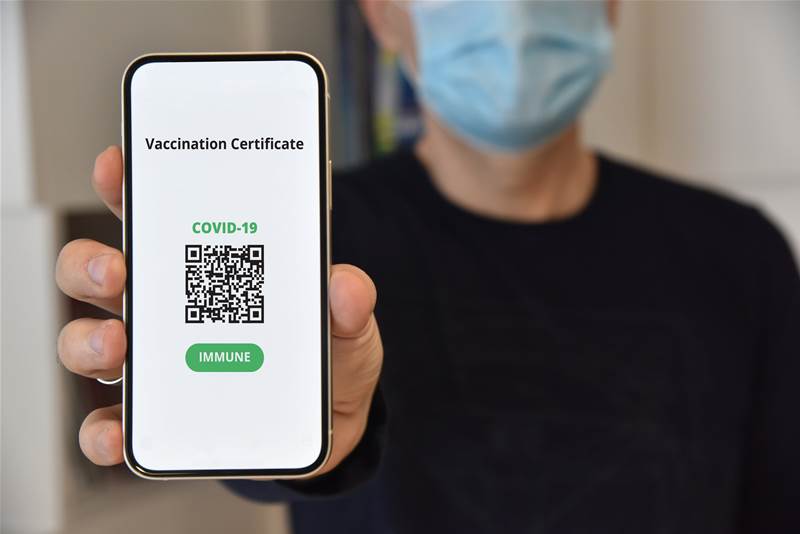As countries ramp up their vaccination programs and shift to a strategy of living with Covid-19, we are witnessing the travel industry riding on a similar wave of optimism with the easing of travel restrictions.
In a significant move, Singapore for example, announced that fully vaccinated travellers can enjoy quarantine-free travel between Singapore and selected countries under the new Vaccinated Travel Lane (VTL) initiative, and is gradually adding more countries over time.
Elsewhere in the region, Thailand has removed mandatory quarantine for fully vaccinated visitors from several countries, while Malaysia has ended its domestic and international travel restrictions for fully vaccinated residents.
Beyond travel, we are also seeing workplaces opening up, restaurants welcoming back more diners and even physical events making a comeback.
But just like travel, we can expect the need to show proof of full vaccination or a negative Covid-19 result to increasingly become mandatory in determining whether a person can enter a workplace, eat at a restaurant or attend events and experiences such as that long-awaited concert.
Manual verification can be slow and unreliable
These differentiated measures to open up safely while safeguarding public health have resulted in the growing demand for solutions that issue trusted health credentials such as test results or vaccination certificates that can be verified and authenticated efficiently.
This demand continues to rise since the alternative manual verification slows down processes that cause inefficiencies and may be unreliable due to the inability to detect the use of a fraudulent certificate.
To this end, verifiable credentials (VCs) play a significant role relieving businesses and authorities of the risk and immense resources otherwise required when verifying such credentials mandated by governments for business continuity.
VCs are digitally verifiable, secure and tamper-evident credentials issued by a competent authority that enable organisations to digitally verify credentials, such as passports, Covid test results and vaccination statuses, instead of relying on physical documentations.
Looking at the travel sector specifically, there have been concerns over the rise of fraudulent vaccination certificates.
This poses a critical issue as travellers should present authentic credentials that comply with the rules set by respective healthcare and government authorities.
With VCs, healthcare providers and other relevant bodies can issue digitally verifiable Covid-19 test and vaccine credentials to travellers.
Airlines and immigration authorities can then use a verification solution, which can be integrated into a government-designated website, to efficiently and accurately verify the credentials’ authenticity and match these against destination entry requirements pre-departure.
This helps grant peace of mind and pre-travel assurance to travellers with credentials that are compliant with safe travel regulations.
Managing the challenges faced
The travel verification solution addresses two issues - data privacy and being able to verify the copious amounts of varying standards of health credentials - given it leverages privacy-preserving and interoperable technology. Let’s take a closer look at these two challenges.
As more countries continue to lift travel restrictions, digital health credentials will only become more integral to a traveller’s journey to enter a country.
Given that these deal with sensitive healthcare data of travellers, healthcare, airlines, and immigration authorities are already leveraging the travel verification solution to ensure test results and vaccine credentials are presented in a secure and privacy-preserving manner, meaning that travellers only share the required information with the relevant authorities.
This is in contrast to physical documents that could easily fall into the wrong hands due to misplacement or negligence.
Furthermore, the environment for international travel has become more complex and continues to evolve each day with the changing entry requirements and different kinds of vaccines and documentation needed.
We recognise that travellers would understandably be concerned with the multiple technology and national health standards of vaccination credentials available especially when specific requirements might differ greatly among countries.
A universal and interoperable travel verification solution helps address this concern, by verifying a plethora of Covid-19 test and vaccination results of various credential formats and national health standards from across the globe.
Technology will play an even bigger role in the new normal. Today’s touchless travel experience already incorporates automation solutions and biometric technology to minimise the risk of virus transmission while ensuring an efficient check-in process.
Beyond the airport or border control setting, there is also potential for digital solutions that centre on verifiable credentials to be deployed for entry to workplaces, shopping malls, museums, attractions, and events.
Customisable verifiable solutions fit nicely in this landscape to ensure data processing is carried out in a trusted and efficient manner that is in accordance with the latest regulations, and communities worldwide can return to work, travel and play with their data safeguarded.
Toby Berger is Director of Travel at Affinidi.










